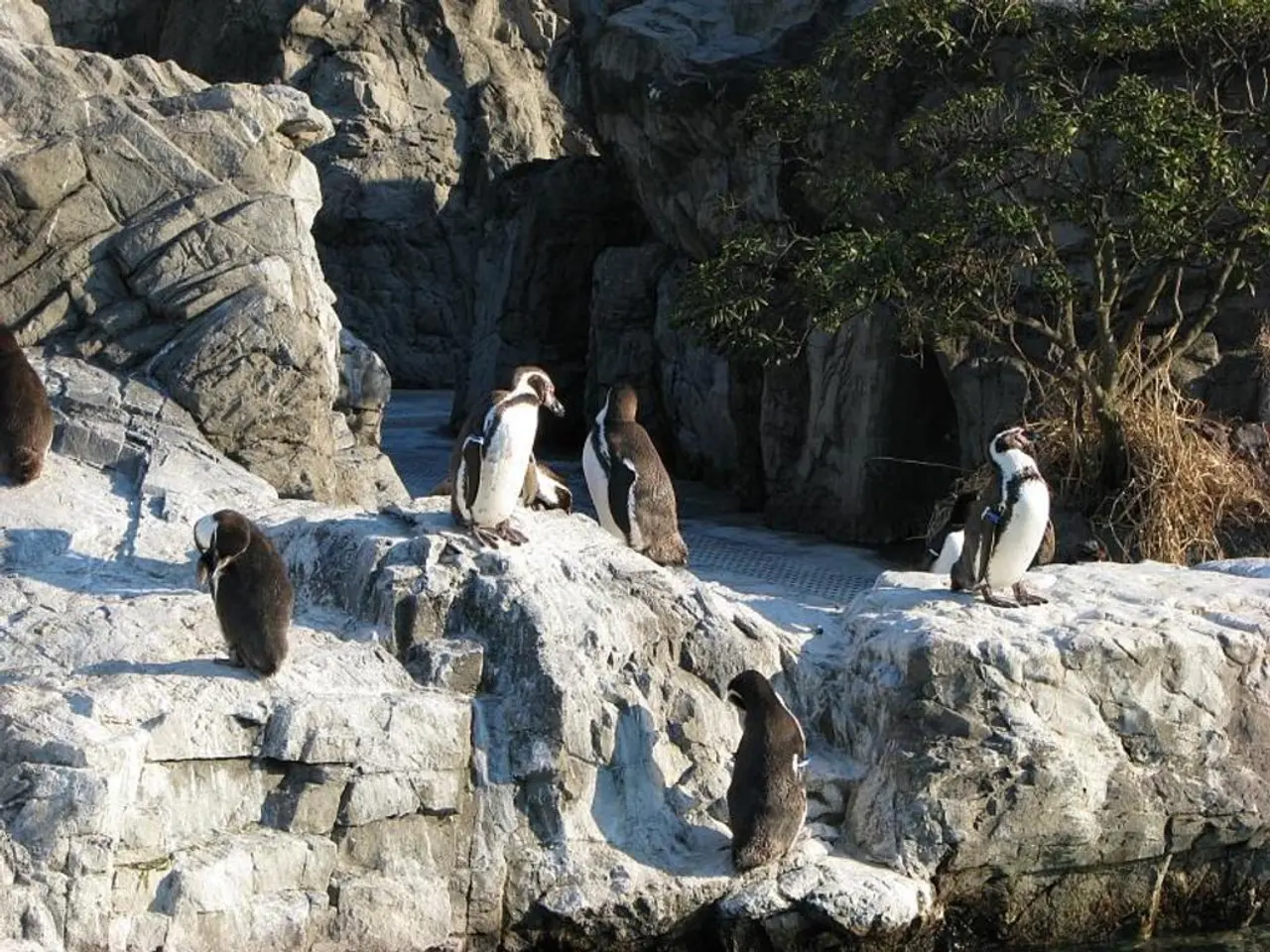Life and Professional Activities in Antarctica
In the heart of Antarctica, the Amundsen-Scott South Pole Station serves as a hub for scientific exploration and discovery. However, the continent is not just a playground for scientists. It offers a diverse range of roles for individuals without a scientific background, providing an opportunity to contribute to the functioning of research stations and support services.
Kiell Kosberg, a blogger from Minneapolis, Minnesota, spent two summers working in Antarctica at a science base. Kiell's top tip for someone heading to Antarctica is to bring lots of socks, a necessity due to the cold climate.
One of the key areas for non-scientific personnel is logistics and support. Roles include cooks and chefs, medical personnel, maintenance specialists, electricians, construction and maintenance workers, and material persons who keep track of incoming cargo and do inventory on existing supplies.
Administrative and coordination roles are also crucial. Coordinators manage daily operations, while waste management specialists oversee the proper disposal and management of waste.
Tourism and expedition support is another vital sector. Expedition guides lead tourists and support expeditions, requiring some scientific knowledge. Ship and vessel staff, including Zodiac drivers and various support staff on expedition vessels, are also in demand.
Other roles include housekeeping and janitorial staff, transportation and supply chain management, and general assistants who perform tasks such as chipping mucky ice, separating out waste, and shovelling snow.
Living conditions in Antarctica can be challenging. The summer camp living quarters are semi-cylindrical canvas and plywood structures called Jamesways, originally from the Korean War. These offer visual privacy but little sound privacy, and can sometimes smell due to water restrictions. The main elevated station consists of about 150 small, individual rooms.
Despite the hardships, there are activities for entertainment, including sports, dance parties, language classes, photography seminars, movie nights, open mic performances, pub trivia, a music room, a craft room, a gym, a library, and hanging out in the greenhouse.
The food in Antarctica mainly consists of meat and potatoes, but the galley staff does a good job with vegetarian options. Fresh fruits, vegetables, and eggs are delivered every three weeks during the summer.
Working in Antarctica has its rewards. Kiell learned to be grateful for long hot showers, trees, lakes, good coffee, and quality beer. A partial solar eclipse was a highlight of Kiell's experience in Antarctica.
Support staff are needed to maintain the Antarctic science bases, including cooks, IT personnel, carpenters, logistics personnel, heavy equipment operators, waste crew, and general assistants. The weather during the summer season can range from -50F with -80 windchill to +10F, while in the winter it can get down to -100F with windchills at -125F.
Despite the cold, bleak, and bright landscape with few clouds and a vast amount of ice and man-made buildings, Antarctica offers a unique and unparalleled opportunity for individuals to contribute to scientific research and support services.
[1] [Source 1] [2] [Source 2]
In Antarctica, roles for individuals without a scientific background are diverse and crucial, such as cooks and chefs, medical personnel, maintenance specialists, electricians, logistics personnel, waste management specialists, and material handlers. Administrative and coordination roles are also essential, including daily operation managers and waste management specialists. Tourism and expedition support is another vital sector, with positions like expedition guides, ship and vessel staff, and Zodiac drivers in demand. Housekeeping and janitorial staff, transportation and supply chain management, general assistants, and fitness and exercise personnel are also needed. Despite challenging living conditions, entertainment activities like sports, dance parties, photography seminars, and a gym are available. The food in Antarctica consists of meat and potatoes, but the galley staff offers vegetarian options with fresh fruits, vegetables, and eggs delivered every three weeks during the summer. Working in Antarctica provides unique rewards, like learning to appreciate basic comforts and witnessing natural phenomena like a solar eclipse. [Source 1, Source 2] Antarctica offers a unique and unparalleled opportunity for individuals to contribute to scientific research and support services, despite the cold and harsh landscape.




